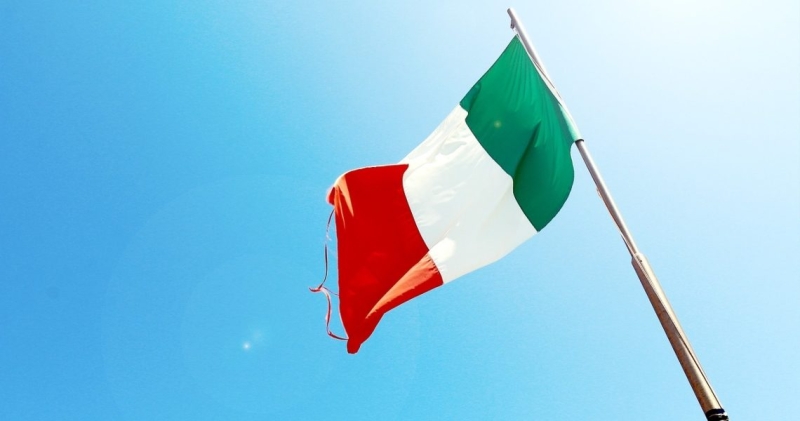Contents

The OAM (Organismo Agenti e Mediatori) has published the first report on service providers related to the use of virtual currency and digital wallets, from the first quarter of 2023.
Indeed, in January 2023 the new crypto regulation came into force in Italy, and the OAM is the body in charge of registering crypto operators operating on national soil.
Specifically, the Registry dedicated to Providers of services related to the use of virtual currency and digital wallet services (VASP) was deliberated by the Ministerial Decree of 13 January 2022, and became operational as early as May 2022.
This is maintained by the Body for the Management of the Lists of Financial Agents and Credit Brokers operating in Italy.
For crypto operators operating in Italy, there is a duty to register on the VASP register, and there is also an obligation to collect and transmit information on an ongoing basis regarding the transactions carried out.
This obligation requires crypto operators to report data on transactions taking place on the Italian territory to the OAM, along with the identifying details of each individual customer.
The report on crypto regulation in Italy
The OAM’s Q1 2023 report on crypto service providers analyzes for the first time the flows sent by VASPs, and provides a detailed picture of the virtual currency market in Italy.
The number of VASPs that submitted data to the OAM on transactions carried out on the territory of the Republic was found to be 74, out of 105 registered members, or 70.5% of those registered.
Putting these partial data together, the report states that as of 30 March 2023, it appears that there were more than 690,000 clients in Italy holding cryptocurrencies with one of these crypto intermediaries, with a total value of more than 1 billion euros.
It is worth mentioning that this data does not include either non-custodial wallets or cryptocurrencies held on intermediaries not registered with the Italian OAM’s VASP register.
In total, more than 1.1 million clients were found to be trading on OAM-registered crypto platforms, but only 59% still held crypto as of 30 March 2023.
The average crypto portfolio value was found to be only €1,500, which is a decidedly low figure compared to the frequent large price swings in cryptocurrencies.
In total, as many as 1.7 million cryptocurrency-to-cryptocurrency fiat trades were conducted in the first quarter of 2023, but only 1.5 million crypto-to-crypto.
Despite this, the average number per active client of crypto-to-crypto exchanges was found to be almost 15, while for crypto-to-fiat transactions, or vice versa, it was less than 12.
Crypto regulation: retail dominance in Italy
The above numbers make it quite clear that those operating in the crypto markets in Italy are predominantly small or very small investors, or speculators who primarily make transactions in euros.
However, in contrast to this, it is also evident that there is a significantly smaller number of users who primarily make crypto-to-crypto transactions.
The prevalence of retail users seems striking, but even among them it is possible to identify two distinct types.
The first is those who are likely to invest small amounts in fiat currency to buy cryptocurrencies with the goal of holding or selling them in the future to cash out fiat currency again.
The second is that of users who instead do mostly crypto-to-crypto transactions, probably with more purely speculative intentions.
The numbers are such that it also suggests that any Italian whales trading in crypto markets do so on other exchanges not registered with the OAM. Not least because only 0.12% of these users turn out to be legal entities (i.e., businesses).
Moreover, 40% of Italian crypto service users turn out to be between 18 and 29 years old.
The situation in the rest of the EU
The report also shows some data from other EU countries.
Interestingly, Poland stands out among them, with as many as 768 VASPs registered with the Chamber of Tax Administration in Katowice.
In second place among the countries with the most registered VASP operators is Italy itself, with 114 registered with the OAM.
France follows with 78 and Spain with 74, while Germany stands at 7.
Abuse
The report also contains the results of an analysis of the potential abusiveness of some VASPs.
This analysis involved a sample of 65 subjects “in order to verify the possible exercise of reserved activities on the national territory in the absence of registration in the Special Section of the Register of Moneychangers, referred to in Article 17-bis, paragraph 1, of Legislative Decree No. 141/2010, or in other registers of EU countries.”
In other words, they went in search of other possible operators, besides those registered with the OAM, who provide crypto services.
Among the 65 subjects analyzed, it turned out that 25% still have an Italian-language website, even though they are not registered with the OAM, and 5% even have social profiles in Italian.
So these are subjects who are not registered with the OAM’s VASP registry, but who also target their crypto services to Italians. They also do not appear to be registered in the VASP Registers of other EU countries.
The main information on these entities will be forwarded to the Guardia di Finanza.

